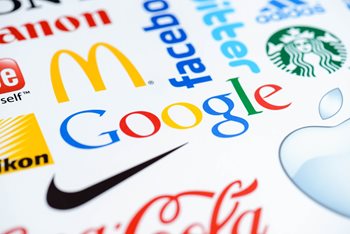The concepts of the awareness and equity of a brand are nothing new, but it seems to be something that many marketers are starting to finally utilize to their advantage. That’s because everyone is starting to twig that these two important metrics can help businesses understand their target audience a lot better. What’s more, taking a deep dive into these metrics can uncover insights to see where targeted ad and marketing campaigns could be improved.
Once you gather data on your own brand’s awareness and equity, you can see whether you really are targeting the right demographics of consumers and how you might be able to improve any targeted campaigns.
One thing to be aware of when you do look into these metrics is that they’re completely separate and unique. If you confuse them as the same thing, it could easily cause problems for your marketing further down the line.
What is brand awareness?
You won’t be able to see the difference between awareness and equity if you don’t know which is which.
Brand awareness is all about how many consumers are already aware of your brand, even if they don’t necessarily use it yet. This could be unaided brand awareness, where your brand is top of consumers’ minds, or aided brand awareness, where they can pick your brand from a list of brand names and logos.
Research shows that brand awareness, particular video brand awareness, is often the first step when customers are choosing to purchase. After all, you’d be more likely to purchase from a brand you already know rather than one that you’ve only just heard of, right?
What is brand equity?
Now let’s think about brand equity. This refers to how much value there is in your brand.
There are a few different factors that will go into your brand’s equity, for instance, the public’s opinions and views of your brand will have a certain sway over its perceived value.
Recognition will also influence equity as customers will have to spend time with a brand to be able to build up their own idea of its value.
This mixture of recognition and perception, along with a handful of smaller factors, will add up to create your brand’s equity.
Why it’s important to know the difference
Do brand awareness and equity sound similar to you? Don’t worry; your not alone. In fact, believing that awareness and equity are the same metric is one of the many common misconceptions of brand marketers.
But if you take a closer look at both, you’ll see that there are actually a number of differences:
Brand awareness is about recognition
When looking at a brand’s awareness, you’ll only be interested to see how many people recognize it. It’s about the numbers and that’s it.
It’s not about the effects of this recognition; it’s simply about how many people can identify your name or branding in either aided or unaided scenarios.
Brand equity looks at how brand recognition adds value
If you’re ever interested in looking into your brand’s equity, you’ll want to go one step further than just finding out how many consumers know about it; it’s important to find out what those who do know about you think and whether or not they would ever consider purchasing from you.
Brand equity isn’t always positive
Looking into brand awareness won’t show you whether those that are aware of your brand have positive or negative views of it. However, when you delve into a brand’s equity, you’ll find out exactly what your customers and the general public think about you.
Brand awareness might be completely neutral, but that certainly isn’t the case for equity. It’s very possible for a brand to develop negative equity. That’s the case when the public holds a negative view of the brand and won’t consider purchasing from it. It’s obviously going to negatively affect the company as a whole and could cause a decline in sales.
Access the latest business knowledge in Marketing
Get Access






Comments
Join the conversation...